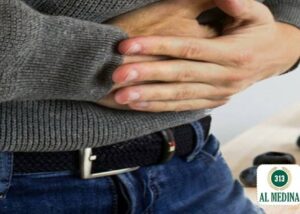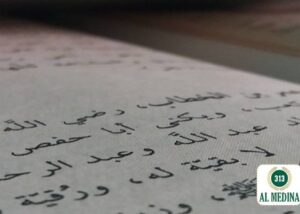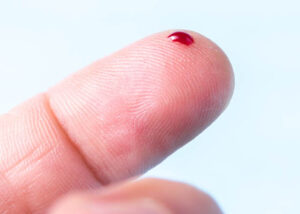Quran
Hadith
Islamic Text
بِسْمِ اللَّهِ الرَّحْمَنِ الرَّحِيم
In the Name of Allah Most Merciful Most Kind
Short Answer
Yes, vomiting does break (invalidate) Wudu. This is according to the Hanafi Madhab. However, this is a matter of difference of opinion and so one should be aware and respectful of such valid differences.
Hadith
عَنْ أَبِي الدَّرْدَاءِ: أَنَّ رَسُولَ اللَّهِ صَلَّى اللَّهُ عَلَيْهِ وَسَلَّمَ قَاءَ، فَتَوَضَّأَ
(Sayidina) Abu al-Dardaa (May Allah Most High be pleased with him) narrated that the Prophet ﷺ vomited and then performed Wudu (ablution). (Sunan al-Tirmidhi, 87).
Explanation
The above hadith is one of the proofs for the Hanafi position that vomiting does break (invalidate) Wudhu. Despite that, there is some discussion regarding the authenticity of this Hadith. For example, Imam al-Tirmidhi made the following comment after narrating it:
وَقَدْ جَوَّدَ حُسَيْنٌ المُعَلِّمُ هَذَا الحَدِيثَ، وَحَدِيثُ حُسَيْنٍ أَصَحُّ شَيْءٍ فِي هَذَا البَابِ
Hussain al-Mualim considered this Hadith to be strong. The Hadith of Hussain is the strongest narration regarding this issue. (Sunan al-Tirmidhi, 87).
Further, Imam al-Tirmidhi also highlighted the fact that there is a difference of opinion amongst early scholars regarding the issue of vomiting breaking (nullifying) the Wudu.
وَقَدْ رَأَى غَيْرُ وَاحِدٍ مِنْ أَهْلِ العِلْمِ مِنْ أَصْحَابِ النَّبِيِّ صَلَّى اللَّهُ عَلَيْهِ وَسَلَّمَ وَغَيْرِهِمْ مِنَ التَّابِعِينَ: الوُضُوءَ مِنَ القَيْءِ وَالرُّعَافِ، وَهُوَ قَوْلُ سُفْيَانَ الثَّوْرِيِّ، وَابْنِ المُبَارَكِ، وَأَحْمَدَ، وَإِسْحَاقَ وقَالَ بَعْضُ أَهْلِ العِلْمِ: لَيْسَ فِي القَيْءِ وَالرُّعَافِ وُضُوءٌ، وَهُوَ قَوْلُ مَالِكٍ، وَالشَّافِعِيِّ
A number of the scholars of the Sahabah and Tabieen narrated that Wudu is required after vomiting or a nosebleed. And it is the opinion of Sufyan al-Thowri, Ibn al-Mubarak, Ahmad, and Ishaq. However, some scholars have maintained that vomiting or nosebleed does not necessitate Wudu. This is the opinion of Malik and al-Shafi. (Sunan al-Tirmidhi, 87).
However, many people in our time do not accept difference of opinion. Even if it is established from the Sahabah. This is contrary to the way of the early Muslims and the Sahabah themselves. In the Nass (text) above, we see Imam al-Tirmidhi narrating differences from early scholars. This is something he does in his Hadith collection regularly. It was a norm amongst the early Muslims to respect such differences.
More Hadith supporting the Hanafi position
Further evidence for the Hanafi position (that vomiting breaks the fast) is found in the Musanaf of Imam Abd al-Razzaq.
عَنْ مَعْمَرٍ، عَنِ الزُّهْرِيِّ، عَنْ سَالِمٍ، عَنِ ابْنِ عُمَرَ قَالَ: إِذَا رَعَفَ الرَّجُلُ فِي الصَّلَاةِ، أَوْ ذَرَعَهُ الْقَيْءُ، أَوْ وَجَدَ مَذِيًّا فَإِنَّهُ يَنْصَرِفُ وَيَتَوَضَّأُ، ثُمَّ يَرْجِعُ فَيُتِمُّ مَا بَقِيَ عَلَى مَا مَضَى، مَا لَمْ يَتَكَلَّمْ
Ma’mar narrated from al-Zuhri form Salim from Ibn Umar (May Allah Most High be pleased with them both), that he said: “If a man experiences a nosebleed during prayer, or vomits, or Madhi (pre-seminal fluid) then he must leave and perform Wudu. Then he should return and continue from where he left and complete that which remains. So long as he did not speak.” (Musanaf Abd al-Razaq, 3609).
The narration above is Sahih as the narrators are that of Imam al-Bukhari from his Sahih collection. However, it is a Mawquf narration. Meaning it is a statement of a Sahabi, not that of the Prophet ﷺ. Although Imam Abd al-Razzaq did also narrate it as a Marfu (prophetic) Hadith, it is Mursal (missing the Sahaabi from the chain). The scholars of Hadith differ over the Mursal narration. Some of them oppose it [the mursal narration] and others find it acceptable.
عَنِ ابْنِ جُرَيْجٍ، عَنْ أَبِيهِ، يَرْوِيهِ عَنِ النَّبِيِّ صَلَّى اللهُ عَلَيْهِ وَسَلَّمَ أَنَّهُ قَالَ: إِذَا رَعَفَ أَحَدُكُمْ فِي الصَّلَاةِ أَوْ ذَرَعَهُ الْقَيْءُ، فَإِنْ كَانَ قَلْسًا يَغْسِلْهُ، أَوْ وَجَدَ مَذِيًّا فَلْيَنْصَرِفْ فَلْيَتَوَضَّأْ، ثُمَّ يَرْجِعْ إِلَى مَا بَقِيَ مِنْ صَلَاتِهِ، وَلَا يَسْتَقْبِلْهَا جَدِيدًا، وَهُوَ مَعَ ذَلِكَ لَا يَتَكَلَّمُ حَتَّى يَرْجِعَ إِلَى مَا بَقِيَ مِنْ صَلَاتِهِ
Ibn Jurayj narrated from his father, who narrated from the Prophet ﷺ that he said, “If one of you experiences a nosebleed whilst praying, or vomits, if it is phlegm then he washes it, or experiences Madhi (pre-seminal fluid) then he must go and perform ablution. Then he can return to what was left of his prayer. He does not start it from the beginning. So long as he did not speak to anyone until he returned to his prayer.” (Musanaf Abd al-Razaq, 3618).
The Mursal narration above was also narrated by Imam al-Darqutni in his Sunan (567). However, Imam Ibn Majah narrated it with a complete chain (with slightly variant wording) in which Ibn Jurayj narrates from Ibn Abi Mulaykah from Sayidah Ayeshah from the blessed Prophet ﷺ. Despite this, Imam Ibn Hajr al-Asqalani mentioned that this narration has been declared weak.
عَنِ ابْنِ جُرَيْجٍ، عَنِ ابْنِ أَبِي مُلَيْكَةَ، عَنْ عَائِشَةَ، قَالَتْ: قَالَ رَسُولُ اللَّهِ صَلَّى اللهُ عَلَيْهِ وَسَلَّمَ: مَنْ أَصَابَهُ قَيْءٌ أَوْ رُعَافٌ أَوْ قَلَسٌ أَوْ مَذْيٌ، فَلْيَنْصَرِفْ، فَلْيَتَوَضَّأْ ثُمَّ لِيَبْنِ عَلَى صَلَاتِهِ، وَهُوَ فِي ذَلِكَ لَا يَتَكَلَّمُ
Ibn Jurayj from Ibn Abi Mulaykah, from (Sayidah) Ayeshah (May Allah Most High be pleased with her) that the Messenger of Allah ﷺ said: ‘Whoever vomits, has a nosebleed, coughs up phlegm, or emits Madhi (pre-seminal fluid), should go and perform Wudu (ablution). Then he must resume his prayer, and he must not speak in that process (of making wudu and returning).’ (Sunan Ibn Majah, 1221).
أَخْرَجَهُ ابْنُ مَاجَه، وَضَعَّفَهُ أَحْمَدُ وَغَيْرُهُ. (بلوغ المرام من أدلة الأحكام)
It was narrated by Ibn Majah. Ahmad and others considered it weak. (Imam Ibn Hajr al-Asqalani, Buloogh al-Maraam).
The word ‘Qalasa’ in the Hadith of Ibn Majah either refers to phlegm or vomit less than a mouthful. In either case, it [phlegm or vomit less than a mouthful] does not nullify the Wudu in the Hanafi Madhab. Further, the narration from Ibn Majah above cannot be used as a proof against this ruling since it is weak.
والقَلْسُ: ما خرج من الحلق ملء الفم أو دونه. (كتاب العين)
Al-Qals refers to that which comes from the throat (phlegm) either filling the mouth or not. (Imam al-Khaleel bin Ahmad al-Faraheedi, Kitab al-Ayn).
وَالْقَلْسُ مَاءٌ أَوْ طَعَامٌ يَسِيرٌ يَخْرُجُ إلَى الْفَمِ فَلَا يُوجِبُ وَضُوءًا. (المنتقى شرح الموطإ)
Al-Qals refers to a small quantity of water or food that enters the mouth. It does not oblige Wudu. (Imam al-Baaji, al-Muntaqaa Sharh al-Muata).
To summarise, based on the narrations above and other related evidence, Hanafi scholars concluded that vomiting does nullify the fast. However, this is only the case if the vomit fills the mouth, and it is not phlegm.
وَالْقَيْءُ مِلْءَ الْفَمِ لِمَا تَقَدَّمَ وَهُوَ مَا لَا يُمْكِنُهُ إِمْسَاكُهُ إِلَّا بِمَشَقَّةٍ. (الاختيار لتعليل المختار)
And vomit that fills the mouth (nullifies Wudu). Due to what was already mentioned. It (a mouthful) is that which cannot be held in without hardship. (Imam al-Mowsili, al-Ikhtiyaar).
وَالْقَيْءُ مِلْءَ الْفَمِ. (الهداية)
And vomit that fills the mouth (nullifies Wudu). (Imam al-Marghinani, al-Hidaayah).
And Allah Most High Knows Best.
–Answered by Shaykh Noorud-deen Rashid (19.04.23)






